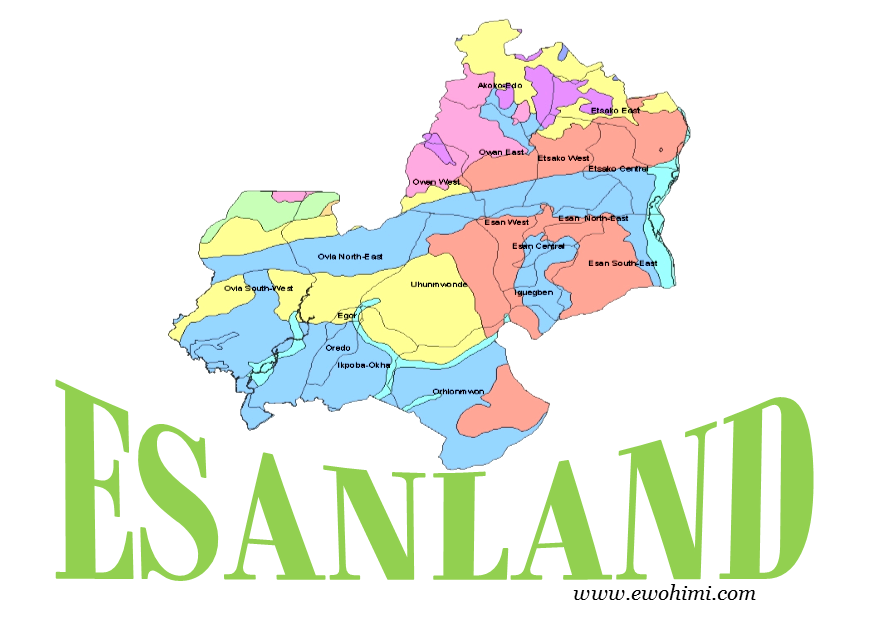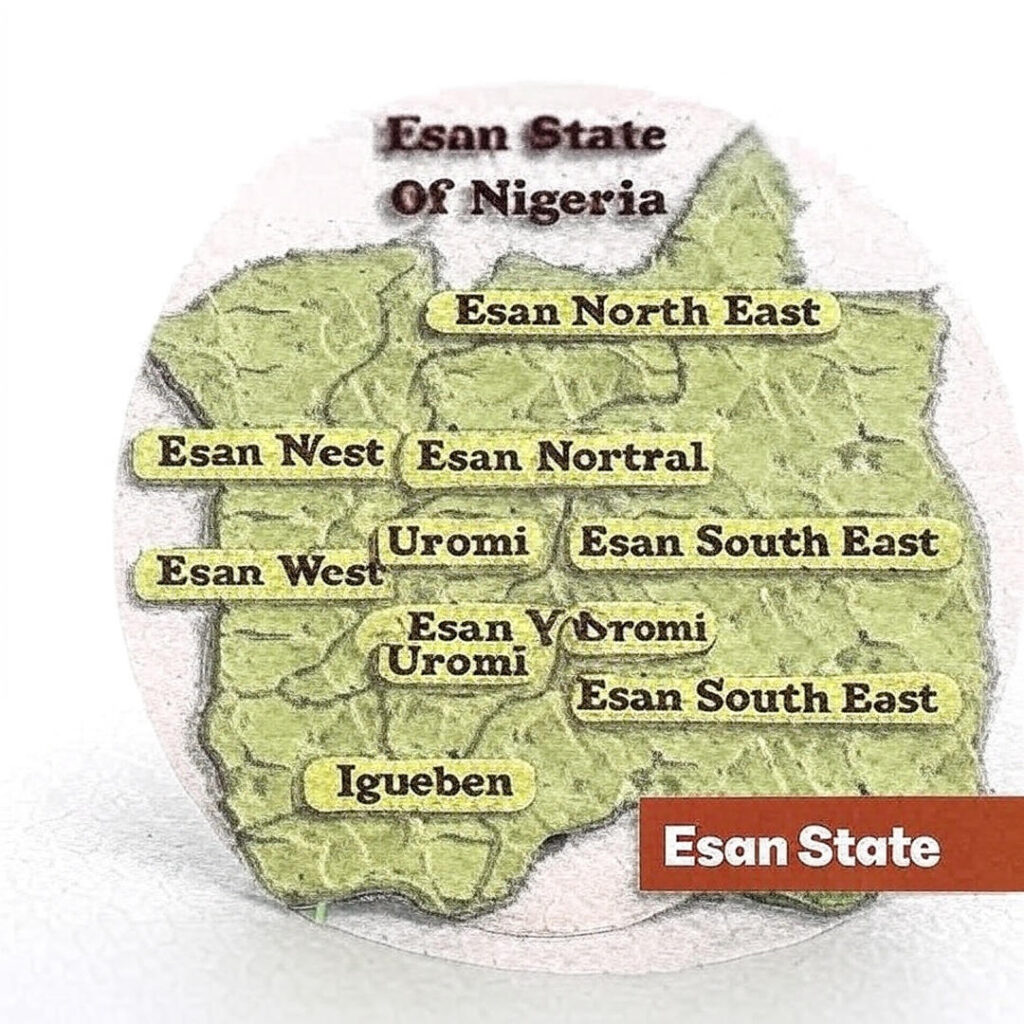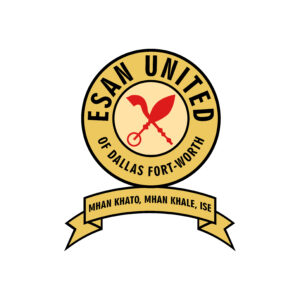A few words about
THE HISTORY OF ESAN PEOPLE
The Esan people (Esan: Ẹ̀bhò Ẹ̀sán) are an ethnic group of south-south Nigeria who speak the Esan language. The Esan’s are traditionally agriculturalists and hunters. They cultivate palm trees, Irvingia gabonensis (erhonhiele), Cherry (Otien), bell pepper (akoh) coconut, betel nut, kola nut, black pear, avocado pear, yams, cocoyam, cassava, maize, rice, beans, groundnut, bananas, oranges, plantains, sugar cane, tomato, potato, okra, pineapple, paw paw, and various vegetables.
The modern Esan nation is believed to have been organized during the 15th century, when citizens, mostly nobles and princes, left the neighboring Benin Empire for the northeast. They formed communities and kingdoms called Eguares among the aboriginal peoples whom they met there.
There are on the whole 35 established kingdoms in Esanland, including Amahor, Ebelle, Egoro, Ewohimi, Ekekhenlen, Ekpoma, Ekpon, Emu, Ewu, Ewato, Ewosa, Idoa, Ifeku, Igueben, Ilushi, Inyelen, Irrua, Ogwa, Ohordua, Okalo, Okhuesan, Onogholo, Opoji, Oria, Orowa, Uromi, Udo, Ugbegun, Ugboha, Ubiaja, Urhohi, Ugun, Ujiogba, Ukhun, and Uzea
The Esan people primarily speak the Esan language, an Edoid language related to Edo, Urhobo, Owan language, Isoko, and Etsako. It is considered a regionally important language in Nigeria, and it is taught in primary schools in addition to being broadcast on radio and television. The Esan language is also recognized in the Census of the United Kingdom.
It is estimated that the Esan people who reside in Esanland number about one million to 2.5 million citizens in Nigeria and there is a strong Esan diaspora. Esan-speaking communities exist in the United States, the United Kingdom, South Africa, Canada, Spain, and Italy. Pan-Esan groups such as the Esan World Congress have kept the Esan community tight-knit.
Taboos in Esan
TABOOS
– When a woman is married to an Esan man, it is an abomination for another man to touch her wrapper, else it is considered as though she has committed adultery unless the married woman shouts at the man or reports to her husband.
– It is an abomination for married couples or anyone at that to have sex in the afternoon as it is believed that a certain spirit would be angered by the act.
– When a woman commits adultery, she will loose her children and her life as repercussion for the abominable act unless she confesses and as restitution, she is stripped completely unclad, a part of her head is shaved, a part of her private part is shaved, one of her armpits is shaved and both of her hands are tied behind her, while a basket full of trash is placed on her head. She is then paraded around the community by other women.
– If this is not done and the woman goes ahead to cook for her children, her children will die one after the other including her. If she also confesses to her husband and out of love or pity her husband conceals the confession, he will die within a week, if he eats a meal cooked by the woman.
– It is a taboo for another man to cross an outstretched legs of a married woman else it is considered as though she already had sex with the man.
– A married woman can not steal her husband’s money in Esan land as it is seen as an abomination. She must tell him about it.
– It is considered an abomination for a man to sit on the matrimonial bed of an Esan couple as it is seen as a taboo.
– It is also an abomination for a woman to spit on her husband under any circumstance. If she does, she must sacrifice a fowl to appease him but the man can bathe his wife with his own spit.
– It is seen as an abomination for an Esan man to use the same bathing bucket with his wife but due to widespread Christianity, this taboo has almost gone into extinction.
– The husband of a woman who just gave birth must stay away from her sexually for three months as she’s considered unclean because of the after delivery blood she discharges.
LGA's in Esan
Today Esanland is divided into five Local Government Areas namely:
Esan West L.G.A., composed of Ekpoma
Esan Central L.G.A., composed of Irrua
Esan North East L.G.A., composed of Uromi
Esan South East L.G.A., composed of Ubiaja and
Igueben L.G.A. composed of Igueben.


Clans in Esan
There are now 35 clans in Esanland, each of which is headed by a king called an Onojie. The clans include: Ekpoma, Uromi, Ekpon, Emu, Ewollimi, Ewatto, Irrua, Ubiaja, Egoro, Wossa, Ukhun, Ugbegun, Igueben, Idoa, Ohordua, Okhuesan, Oria, Ogwa, Okalo, Ebelle, Uzea, Onogholo, Orowa, Urohi, Ugun, Udo, Ujiogba, Iyenlen, Ifeku, Iliushi, Amahor, Opoji, Ugboha, Uroh, and Ewu.

